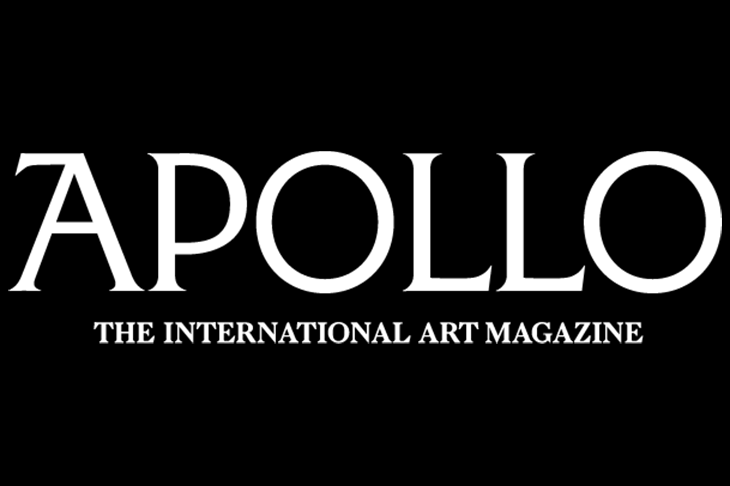Our daily round-up of news from the art world
London Mayor Accused of ‘Cover Up’ Over Garden Bridge | Wherever you stand on Thomas Heatherwick’s proposed ‘Garden Bridge’, the Architects’ Journal has published an article that makes for crucial reading. As the AJ reports, critics of the project have accused London Mayor Boris Johnson of bias towards Heatherwick’s selection for the project, claiming that the competition – for which Heatherwick was nominally up against two other major architectural firms – was ‘prejudged’ and ‘unfair’. The allegations centre on a business trip Johnson took to Apple HQ in San Francisco in 2013, reportedly to ‘drum up support’ for the project – a trip on which Heatherwick is alleged to have joined a meeting to fundraise for a garden bridge before the procurement process was complete. Heatherwick’s project, construction of which is due to begin this year, has attracted enormous controversy since it was announced and seemingly weathered it all. Will this latest revelation prove a bridge too far?
Nicholas Serota Backs Art Fund’s Call for UK Export Review System Reform | Tate Director Nicholas Serota has backed calls made by Art Fund director Stephen Deuchar to reform the UK’s Export Review system for works of art. According to Serota, if the current framework is not altered to make sellers confirm in advance that they will accept matching offers from UK public institutions, fundraising campaigns to save works for the nation will be ‘doomed to failure’. ‘Donors will not be inclined to give when their generosity may turn out to be an empty gesture,’ he told the Art Newspaper. For more context and information on the complex rules regarding export laws and fundraising, read TAN’s report here.
Russian Artist Committed to Psychiatric Hospital | Pyotr Pavlensky, the artist who made headlines last year after setting fire to the headquarters of Russia’s security service, has been transferred from prison to a psychiatric hospital. According to the New York Times, Pavlensky’s move to the Serbsky State Scientific Centre may be indicative of Russia’s return to one of the USSR’s most disturbing methods of dealing with dissidents: political psychiatry. The Serbsky Centre was ‘notorious for giving insanity diagnoses to political dissidents in the Soviet period,’ says the NYT.
Getty Acquires Gentileschi’s Danaë for $30.5 million at Sotheby’s | The J.Paul Getty Museum has acquired Orazio Gentileschi’s Danaë for more than seven times the artist’s previous auction record. The work was the star attraction at Sotheby’s New York’s Evening Sale of Master Paintings, which netted $53.5 million last night. Danaë was commissioned by nobleman Giovanni Antonio Sauli in 1621, and ranks among Gentileschi’s most important works. The acquisition is a significant purchase for the Getty, which also owns the artist’s depiction of Lot and his Daughters – another painting commissioned by Sauli.
Jakarta to Open its First Contemporary Art Museum | The Indonesian capital is bracing itself for the launch of the Museum MACAN, its first ever contemporary art museum. The 4,000m2 institution will house a collection of some 800 works, as well as hosting temporary exhibitions and public programmes. Dr Thomas J. Berghuis, a former curator at the Guggenheim, will serve as the museum’s first director when it opens later this year.
Art Institute of Chicago Announces New President | Curator James Rondeau has been appointed President of the Art Institute of Chicago, succeeding veteran Director Douglas Druick. Rondeau, 46, is currently chair of the Institute’s modern and contemporary programmes, and is something of an insider, having served at the AIC for over 18 years. So, good times for the venerable Institute. As we learned this week, it now has some serious cash to play with…
Jacques Rivette Dies aged 87 | Film maker and Nouvelle Vague pioneer Jacques Rivette has died aged 87. Though never as commercially successful as his contemporaries Truffaut, Chabrol and Godard, Rivette was arguably the most ambitious of the great directors who shook the foundations of European cinema in the 1960s. With pictures such as Paris nous appartient, Le Pont du Nord and the sprawling, 13-hour masterpiece Out 1, Rivette invented a new kind of art cinema – one that was entirely unconfined to received ideas of what film could and should be. See here for a (relatively) short example of his distinctive style.



